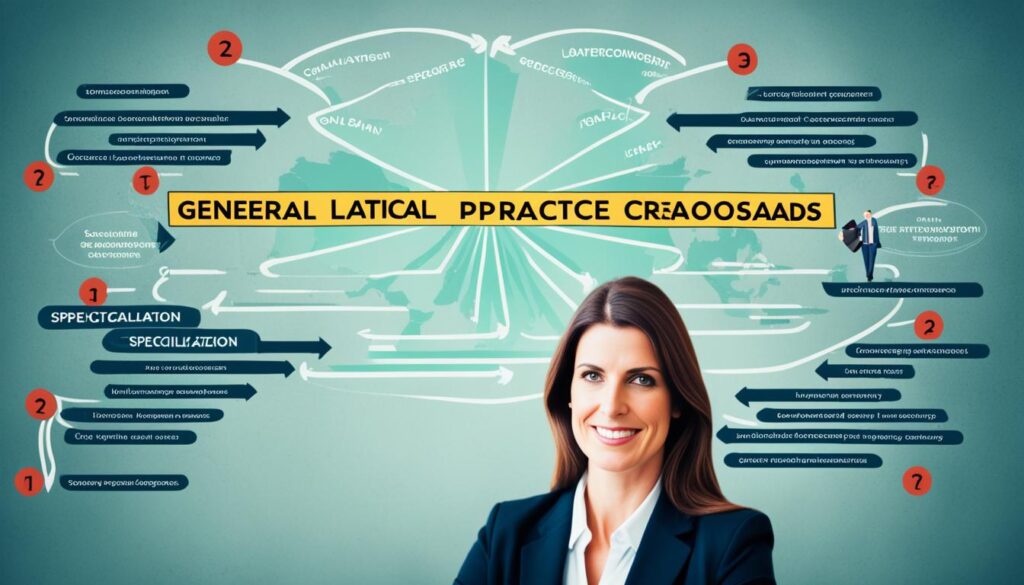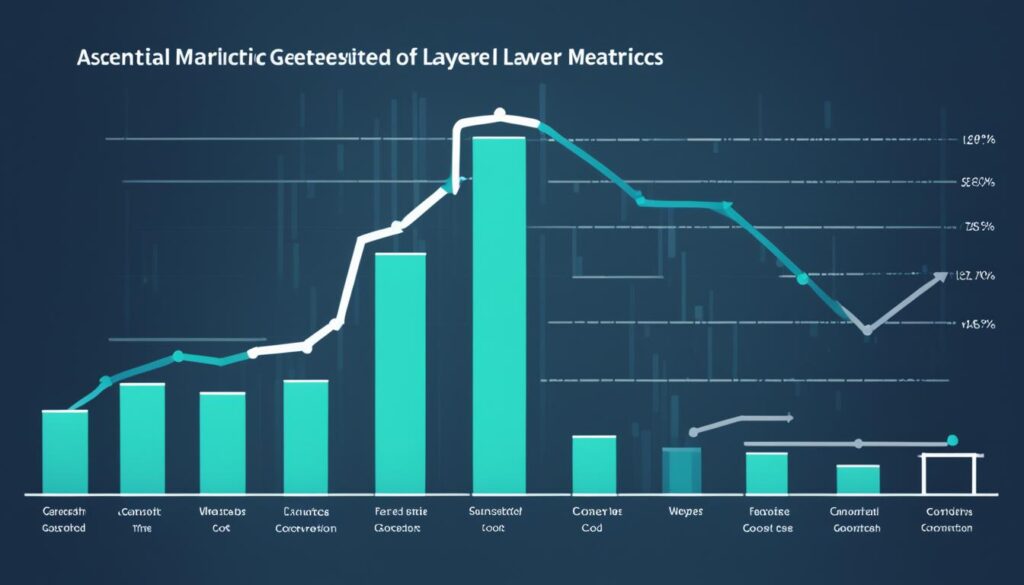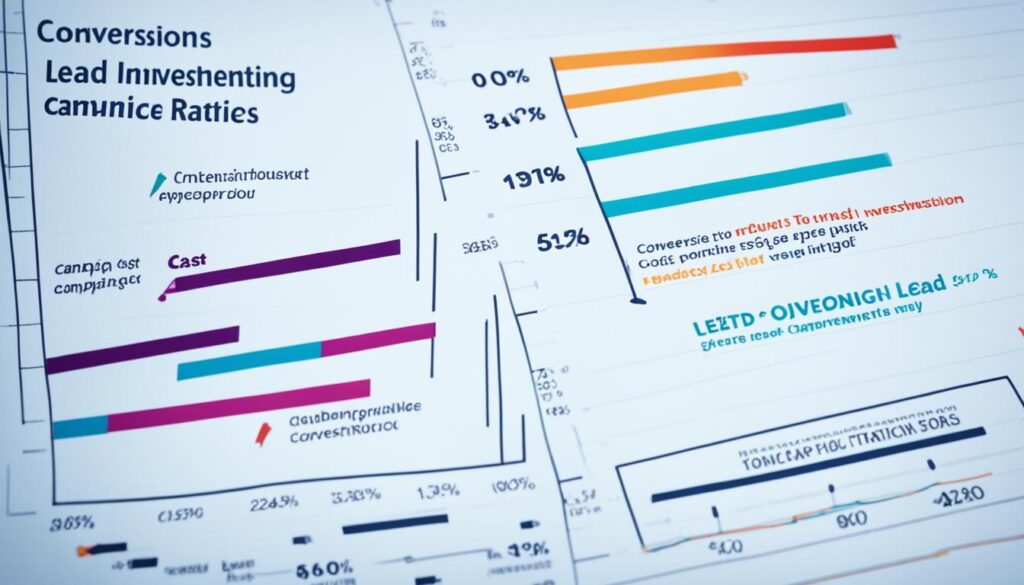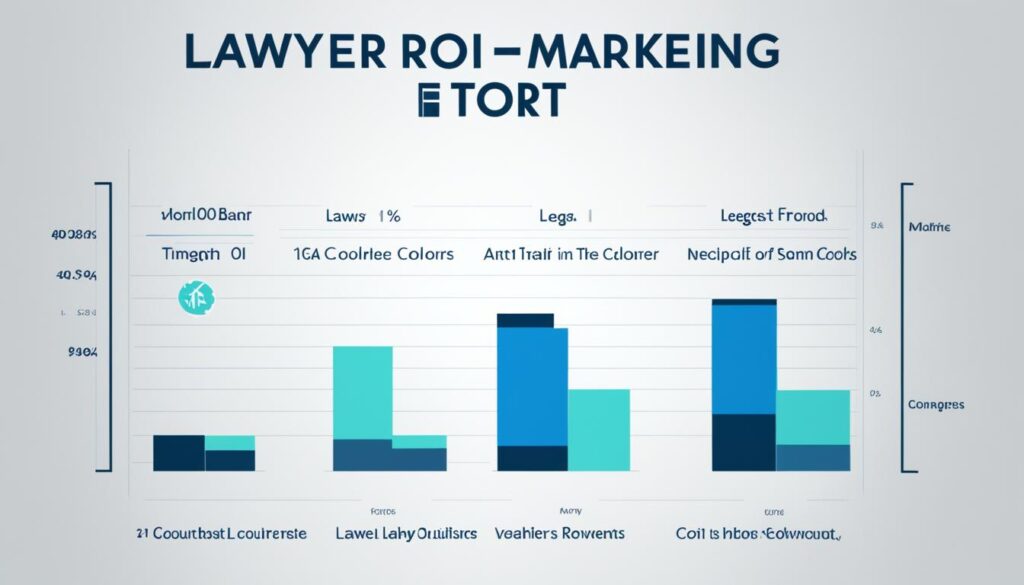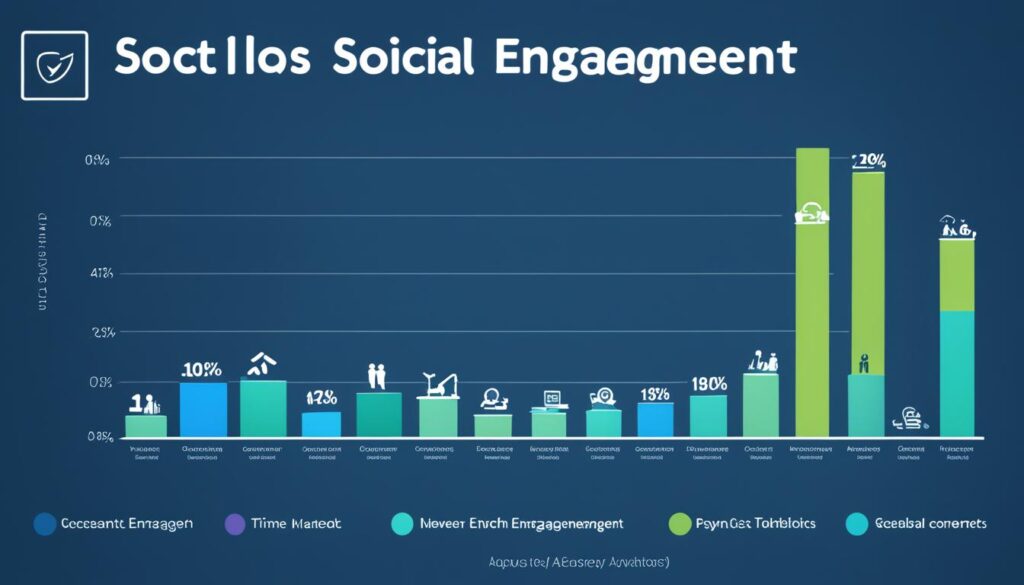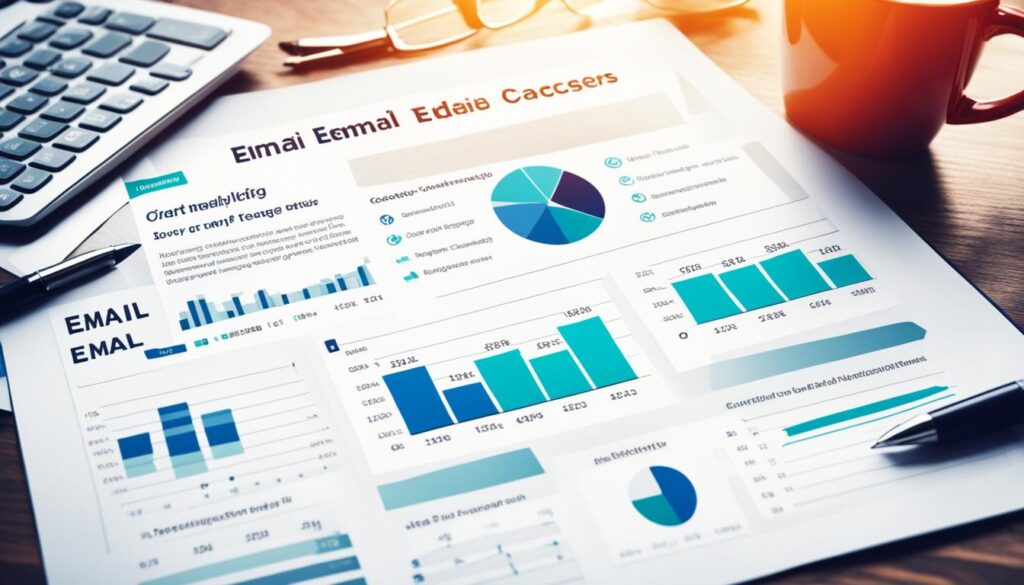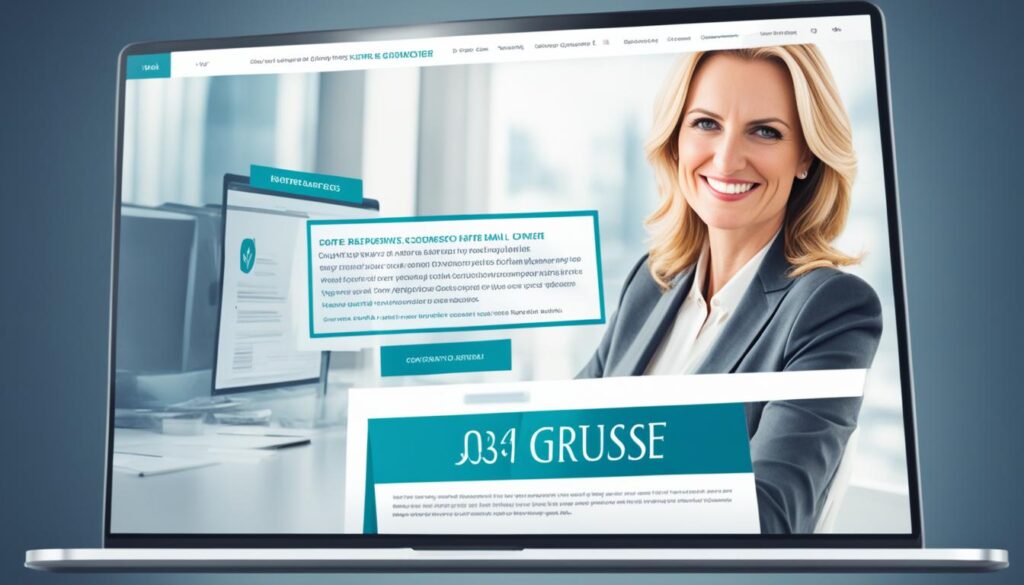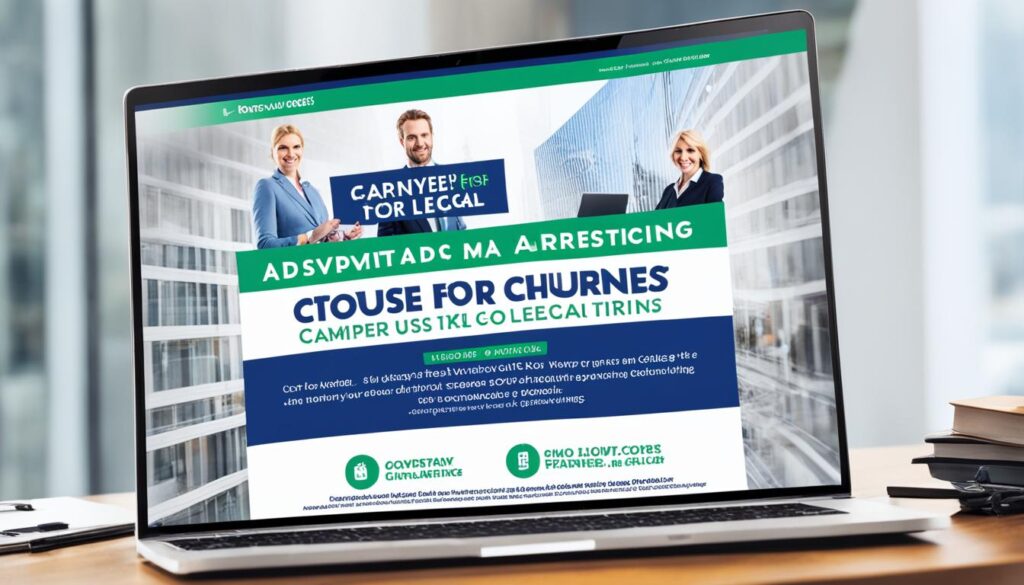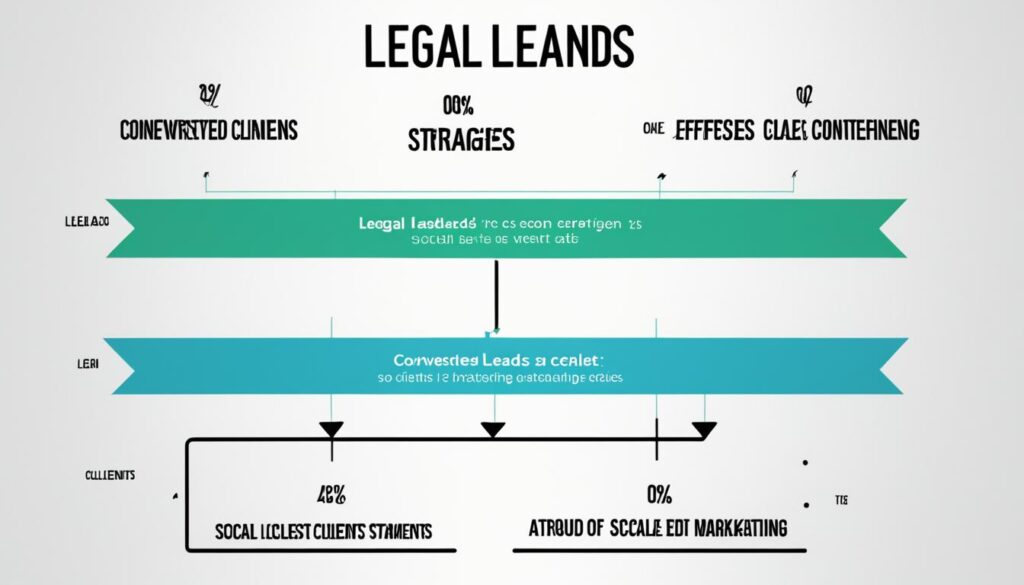Did you know clients prefer hiring experts in specific areas over general lawyers? Niche legal practices are now more popular. This is because clients want lawyers who really understand their unique situations. Let’s dive into effective strategies to market your specialized legal services. We aim to help you reach the people who need your skills the most.
Standing out in a competitive market is crucial. This article will guide you on that journey.

Key Takeaways:
- Position yourself as an expert in your niche area of law to build credibility and attract potential clients.
- Showcase your specialization through thought leadership, content creation, and engagement on platforms where potential clients are likely to be.
- Utilize targeted marketing strategies such as personalized messaging, targeted advertising, and networking within your niche area.
- LinkedIn is a valuable marketing channel for lawyers to showcase their expertise and engage with potential clients.
- Explore other marketing avenues such as personal connections, collaborations, and networking opportunities to maximize reach.
Defining a Niche Legal Practice
A niche legal practice focuses on meeting specific needs. It specializes in a certain area, developing legal expertise. This can range from a broad focus to a very narrow one. The narrower the focus, the more specialized the skills needed.
Lawyers in niche practices dedicate themselves to areas like intellectual property or immigration law. They become experts and offer tailored advice. This lets them deeply understand and navigate their field’s unique challenges.
Industry-focused practice is crucial for clients seeking specialized knowledge. Lawyers with deep industry expertise can provide valuable insights. In sectors like healthcare, this expert navigation is especially beneficial.
| Benefits of a Niche Legal Practice | Challenges of a Niche Legal Practice |
|---|---|
|
|
By focusing on specialized practice areas, lawyers become trusted advisors. They attract clients who value expertise. Specialization also helps lawyers deepen their knowledge and build a strong reputation. But, they must consider both benefits and challenges for long-term success.
In the next section, we explore the popularity of niche legal practices. We’ll see why clients are leaning more towards specialized knowledge.
Popularity of Niche Legal Practices
Niche legal practices have become very popular lately. Clients now prefer hiring experts who specialize in their legal issues. Gone are the days when clients wanted a lawyer who could do everything. Now, they see the value in hiring attorneys with a specific focus.
Choosing a niche legal practice means clients get tailor-made solutions. These attorneys know a lot about a particular area of law. This allows them to give specialized advice that fits the unique needs of their clients’ cases.
Attorneys focusing on a niche can give better service and outstanding results. Clients like hiring someone who has dedicated their career to a specific area. They know these lawyers can offer new strategies and insights that are not common.
The Shift in Client Preferences
The trend towards niche legal practices shows a change in what clients want. Now, they look for attorneys who are experts in their field, not just any general lawyer. This change comes as laws get more complex and clients want specific advice for their issues.
Niche attorneys give clients confidence. These clients know their lawyer can handle their case well. Specialized knowledge can really make a difference, giving them an advantage in complicated legal situations.
“Clients no longer view general practitioners as the ideal choice for their legal needs. They want attorneys who possess specialized skill sets and have a deep understanding of the intricacies of their specific legal issues.” – Legal Expert
There are now more lawyers specializing in certain areas. These lawyers spend a lot of time and effort to become experts. They stay current with all the new developments in their field.
Highlighting the Value of Niche Attorneys
Niche attorneys bring a lot of value. They have knowledge and insight that general lawyers may not have. They know a lot about the laws in their area, which lets them solve their clients’ problems effectively.
They also know other professionals in their field. This means they can use more resources and work with other experts. This teamwork improves their service and gives clients access to more legal support.
In summary, the rise in niche legal practices shows clients prefer expert lawyers. These lawyers are valuable because of their deep knowledge, personalized solutions, and teamwork. By focusing on a specific area, they get great results and become trusted experts.
| Benefits of Niche Legal Practices | Clients’ Perspective |
|---|---|
| Specialized expertise | Clients receive tailored solutions from attorneys with a deep understanding of their specific legal needs. |
| Innovative strategies | Niche attorneys offer unique and creative approaches to solving complex legal problems. |
| Networking opportunities | Niche attorneys have professional connections within their specialized area, providing broader resources and collaboration opportunities. |
| In-depth knowledge | Niche attorneys possess comprehensive knowledge of the laws and regulations governing their practice area. |

Narrowness of Niche Practices
A niche in legal practice might focus on just one kind of case. How narrow this focus can be depends on the ability to keep the practice going by attracting clients. The more focused the area, the deeper the expertise needed becomes.
Some legal professionals dive even deeper, focusing on a niche within a niche. This makes them go-to experts for very specific issues. It positions them as leaders in their area.
But finding the right level of specialization requires thought. One must look at the market need and whether they can truly help their niche clients. It’s all about finding a balance between being specialized and keeping a stable client base.
Benefits of a Specialized Practice Area
Specializing in a specific legal area brings benefits for both lawyers and their clients:
- Enhanced expertise: Specializing means gaining deep insights into specific legal areas. This allows for providing clients with customized, effective solutions.
- Increased credibility: Being known for a specialized area boosts a lawyer’s reputation. Clients look for this focused expertise, leading to stronger relationships and more referrals.
- Targeted marketing: Specialization makes marketing efforts more focused. Lawyers can attract clients looking exactly for their expertise. This approach helps in getting quality leads and long-term clients.
Client Base Sustainability in Niche Practices
To keep a niche legal practice thriving, consider these:
- Market demand: Knowing there’s a need for your specialization is key. Identifying potential clients who need your services helps ensure you have a steady client base.
- Specialized skills and knowledge: Success in a niche requires up-to-date knowledge and skills. Continuous learning is vital for effectively helping clients.
- Networking and referrals: Having a strong network in your niche area helps maintain your client base. Good relationships with peers can lead to referrals and partnerships.
Maintaining a niche practice hinges on understanding market demands, staying skilled, and building strong networks.
| Advantages | Considerations |
|---|---|
| Enhanced expertise | Market demand |
| Increased credibility | Specialized skills and knowledge |
| Targeted marketing | Networking and referrals |

Marketing a Niche Legal Specialization
Marketing a niche legal specialty needs a unique strategy. This is different from promoting a general practice or law firm. It’s all about being seen as the go-to expert in your specific legal area and highlighting your specialization.
To be seen as an expert, sharing your knowledge is key. You can do this by creating content that speaks directly to your potential clients’ needs within your niche. Being active on forums, social media, and legal communities helps you become a trusted authority.
Using marketing strategies made for your niche can also improve your efforts. By speaking directly to the unique problems your potential clients face, and offering solutions, you grab their attention. Targeted ads online or in industry publications can also help spread the word.
Getting involved in your niche community is another smart move. Go to industry events, join professional groups, and network. This lets you meet potential clients and make connections with other experts.
“Marketing a niche legal specialization means showing you’re an expert. This is done by sharing knowledge, targeted marketing, and networking in your niche.”
In summary, to market a niche legal specialty, you need to mix knowledge sharing, specific marketing actions, and networking. These steps help you become seen as a dependable expert. By doing so, you will attract clients who need your specific legal expertise.

| Key Strategies for Marketing a Niche Legal Specialization |
|---|
| Position yourself as an expert through thought leadership. |
| Showcase your specialization through targeted content creation. |
| Engage with potential clients on platforms where they are present. |
| Utilize targeted marketing strategies, such as personalized messaging and advertising. |
| Network within your niche area to build connections and establish yourself as an expert. |
LinkedIn as a Marketing Channel
LinkedIn is great for lawyers and law firms to market themselves. It’s a professional place where attorneys connect and talk. This makes it perfect to show off your skills and meet possible clients.
To market well on LinkedIn, make sure your profile stands out. Highlight your attorney skills and show you’re credible. Using LinkedIn Lives is also a good way to show what you know and meet clients.
While LinkedIn is key, don’t rely on it alone. It’s smart to use different platforms to market your services. This way, you can reach more people.

- Make a profile that shows your legal skills, experience, and wins. Use keywords that connect to your work to help people find you.
- Connect with other lawyers and professionals. This helps you build a network and look reliable.
- Join LinkedIn Groups that matter to your field. Take part in talks to share your knowledge.
- Post useful content like articles or insights about your legal area. This makes you look like an expert.
- Use LinkedIn’s platform to publish your own work. This helps you become known in your area of practice.
- Think about using LinkedIn ads to reach the right legal professionals or possible clients.
By using LinkedIn for marketing, lawyers and law firms can get more noticed. They can also connect with potential clients and show their expertise to the professional world.
Exploring Other Marketing Avenues
LinkedIn is great for advertising legal services, but exploring other marketing avenues maximizes reach. Alongside digital platforms, offline strategies are also effective. They help in reaching potential clients and making personal connections within the legal community.
1. Leveraging Personal Connections
Leveraging personal connections within the legal community is a strong marketing strategy. It means reaching out to colleagues, former classmates, and other professionals. Let them know about your legal practice. Personal connections can lead to valuable referrals and recommendations.
2. Collaborating with Local Bar Associations
Working with local bar associations is another good marketing strategy. These associations organize events and conferences where lawyers can network. By participating and showing your expertise, you can attract clients looking for specialized legal services.
3. Offering Educational Resources to Attorneys
Offering educational resources to attorneys is also effective. This includes hosting webinars, writing articles, or creating guides. These resources should give valuable insights related to your practice area. By being a trusted resource, you can attract referrals from attorneys with clients in need of specialized services.
4. Networking Opportunities
Joining business networking organizations and attending specific events can provide chances to meet potential clients. Choose events that relate to your niche. Engaging in these activities helps in building relationships, generating leads, and increasing chances of bringing in potential clients.
| Marketing Strategies | Benefits |
|---|---|
| Leveraging Personal Connections | – Referrals from trusted colleagues and professionals – Recommendations to potential clients |
| Collaborating with Local Bar Associations | – Opportunities to network with colleagues and potential clients – Increased visibility within the legal community |
| Offering Educational Resources to Attorneys | – Establishing yourself as a trusted expert – Attracting referrals from other attorneys |
| Networking Opportunities | – Building relationships with potential clients – Generating leads for your niche practice |
Customize your marketing to meet the unique needs of your target audience. This helps you reach potential clients and establish yourself as an expert in your field.
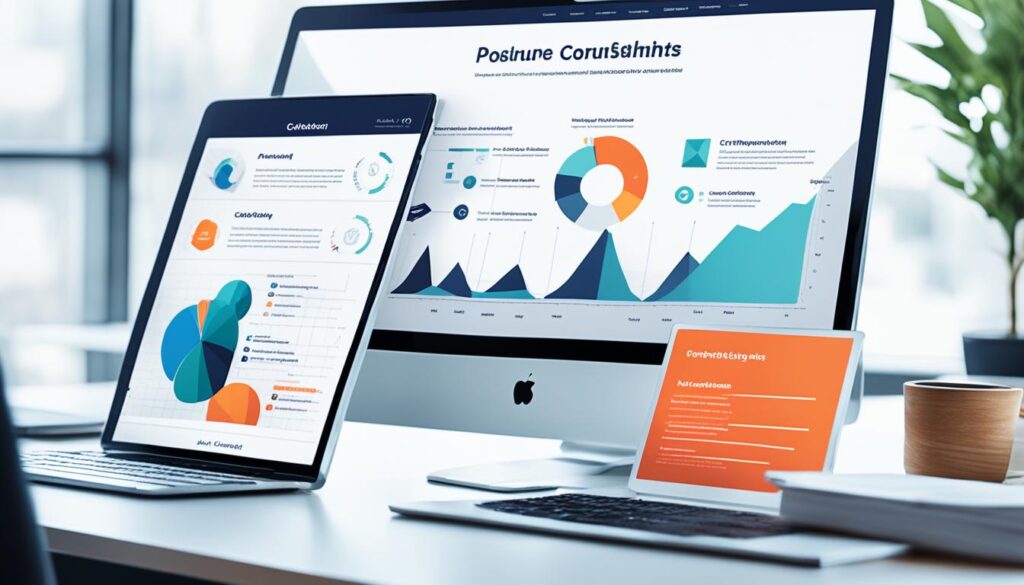
Importance of Lead Generation
Lead generation is key in any law firm’s marketing plan. It uses different methods to draw in potential clients. The main aim is to build strong ties with clients and earn their loyalty.
The first step is drawing in potential clients. This means tailoring marketing efforts to meet the audience’s needs. Law firms work to understand what their potential clients are looking for.
Next, it’s crucial to use a good CRM system. This system organizes client info and keeps track of talks. It makes sure that law firms don’t lose any leads.
Email marketing is also a great tool. It sends personalized emails to leads. These emails offer helpful information and stories, building trust.
“Successful lead generation meets the unique needs of the audience. It creates plans to turn potential clients into real ones.”
Understanding potential clients is vital. It lets law firms send messages that truly speak to their audience. This approach sets them up as reliable advisors.
In summary, lead generation is crucial for law firms. It helps in attracting and keeping clients. Using smart campaigns, CRM systems, and email marketing boosts its success.
| Benefits of Lead Generation | Strategies for Lead Generation |
|---|---|
|
|
Example Case Study: Lead Generation Success
Smith & Associates Law Firm came up with a lead generation plan. They focused on bringing in clients through online ads and improving their website. This got them quality leads.
They also set up a CRM system. This system helped them manage leads and personalize their approach. They sent out emails too, which were tailored to each lead’s needs.
Thanks to these efforts, the firm got more clients. They also built stronger relationships with their current clients. Their success shows how valuable lead generation is.
Content Marketing for Law Firms
Content marketing is key for law firms wanting to show their expertise, reach potential clients, and have a strong online presence. By using blogs, guest posts, and social media, they can offer valuable information. This helps connect with people who need their services.
Creating great content is the backbone of this marketing strategy. It’s about making content that speaks to the needs and worries of potential clients. Lawyers can show they are reliable and knowledgeable by sharing useful information.
Create Engaging Blog Posts
Blogs let law firms share their knowledge, answer legal questions, and talk about new developments. Posting regularly helps them become more credible. It invites people to interact with the firm.
By blogging, law firms can tackle legal issues, give tips, and guide people who need help. Using the right keywords in their blogs makes them easier to find on the internet. This draws in people looking for legal advice.
Guest Posting for Increased Visibility
Guest posting on well-known legal sites helps law firms reach more people. This boosts their online presence. It shows they’re leaders in their field.
When they guest post, it’s important to make content that fits the site’s audience. This grabs the attention of potential clients. It also shows off the firm’s skills and trustworthiness.
Engaging with Social Media Content
Social media lets law firms talk directly to potential clients. Sharing interesting and useful content builds relationships. It shows they’re friendly and know what they’re talking about.
On social media, they can update people on legal news, talk about cases, and give advice. Staying active and replying to people helps build a community. This community will then look to them for legal help and advice.
Optimizing Online Profiles
It’s important for law firms to make their online profiles stand out. This includes profiles on LinkedIn, legal directories, and their websites. They should highlight what they’re good at, share their experiences, and use the right keywords. This helps potential clients find them more easily.
A strong online profile attracts more clients. It also boosts their spot in search results. A profile that’s well-made and uses the right keywords is crucial for marketing success.

| Advantages of Content Marketing for Law Firms | Disadvantages of Content Marketing for Law Firms |
|---|---|
| 1. Establishes expertise and thought leadership within the industry. | 1. Requires consistent effort and dedication to create and maintain valuable content. |
| 2. Builds trust and credibility with potential clients. | 2. Results may take time to materialize, requiring patience and long-term commitment. |
| 3. Increases online visibility and organic search engine rankings. | 3. Requires staying up-to-date with the latest trends and developments in content marketing. |
| 4. Drives targeted traffic to the law firm’s website. | 4. Competing with other law firms for audience attention and engagement. |
| 5. Provides an opportunity to engage with potential clients and address their concerns. | 5. Balancing the creation of promotional and educational content. |
Traditional and Paid Advertising
Law firms can use traditional and paid advertising to get noticed and find new clients. Traditional methods, like billboards and print ads, reach a broad audience. Yet, their impact can vary based on what you aim for and who you want to attract.
Paid advertising, however, gives more specific, measurable outcomes. Through pay-per-click (PPC) campaigns on platforms like Facebook and Google, you can connect with those seeking legal advice. PPC ads target users by what they are looking for or their profile details, hitting the right audience when it matters.
A PPC expert can fine-tune your strategy for better results. They’ll pick the best keywords and targeting to draw in quality leads for your firm.
Benefits of Traditional Advertising
Billboards, telemarketing, and print ads have unique perks for law firms:
- Billboards grab the attention of passersby, boosting your firm’s profile.
- Telemarketing enables direct chat with potential clients, offering personalized responses.
- Print ads give a physical reminder of your firm that people can keep.
These traditional channels help you connect with your local area and those not online looking for legal help.
Benefits of Paid Advertising
Advertising on digital platforms like Facebook and Google has its advantages:
- You can target ads to specific groups, improving the chances of reaching interested parties.
- Paid ads make it easy to see how well your campaign is doing. You can track clicks, views, and the actions taken.
- You have control over your advertising budget, adjusting costs based on results.
With paid advertising, you can directly reach people online who need legal help, increasing brand awareness and getting leads.
| Traditional Advertising Methods | Paid Advertising Methods |
|---|---|
| Billboards | Pay-per-click (PPC) campaigns |
| Telemarketing | Social media advertising |
| Print ads | Display advertising |

Choosing the best advertising approach depends on your firm’s targets, budget, and audience. Blending traditional and paid methods can broaden your reach. This mix can help your firm stand out, attract more clients, and grow.
Events and Networking for Law Firm Marketing
Hosting events and networking are key for law firm marketing. They help build connections, show off expertise, and find leads. By joining events and networking, lawyers can grow their circle and draw in clients.
Events let lawyers be seen as leaders in their field. They can talk at conferences or run workshops. This helps share knowledge and make strong professional bonds. Hosting events also targets the right audience for law firms.
Networking with other legal pros is crucial too. It lets lawyers meet judges and influencers. This can bring new business and collaborations. Events for networking, like bar associations, are perfect for creating these ties.
Today, online networking is a must alongside face-to-face meetings. Platforms like LinkedIn help lawyers meet clients and peers. By sharing insights and joining conversations online, lawyers can stand out. This attracts clients looking for expert legal advice.
FAQ
How can I effectively market my legal specialty to potential clients?
To market your legal specialty, become known as an expert in your field. Create content and use marketing tactics that reach your ideal clients.
What is a niche legal practice?
A niche legal practice zeroes in on a specific client need in a particular area of law. It’s about being an expert in a certain field to provide customized solutions.
Why have niche legal practices become popular?
Clients prefer experts for their unique legal needs. Niche practices show deep knowledge in one area, offering solutions that are more tailored. This makes them very appealing.
How narrow should my niche legal practice be?
Your niche should be narrow enough to be specialized but also broad enough to attract sufficient clients. Consider market demand and your specialty depth to decide its scope.
How can I market my niche legal specialization effectively?
For effective marketing, prove you’re an expert in your niche. Use thought leadership and content to show your specialization. Also, use targeted advertising and network in your field.
Is LinkedIn a valuable marketing channel for lawyers and law firms?
Yes, LinkedIn is excellent for marketing legal services. Attorneys use it to connect and showcase their expertise, making it great for engaging with potential clients.
Should I explore other marketing avenues besides LinkedIn?
Yes, don’t rely solely on LinkedIn. Use your legal connections, work with bar associations, and share knowledge. These actions help you meet possible clients and grow your practice.
How important is lead generation for marketing a law firm?
Lead generation is key for law firm marketing. It’s about drawing in prospects and making them clients. Using email marketing and optimizing campaigns are good strategies for this.
What is content marketing, and how can it benefit my law firm?
Content marketing helps law firms become thought leaders. Create blogs, social media content, and more to connect with potential clients. It’s about trust and showing your value.
Are traditional advertising methods still effective for law firms?
Old-school ads like billboards can work for law firms, but the results vary. Follow ethical guidelines closely. Online ads can also lead to more clients when done right.
How can events and networking benefit law firm marketing?
Events and networking are great for marketing. They let you show your know-how and meet potential clients. also, networking can lead to referrals and widen your firm’s reach.














